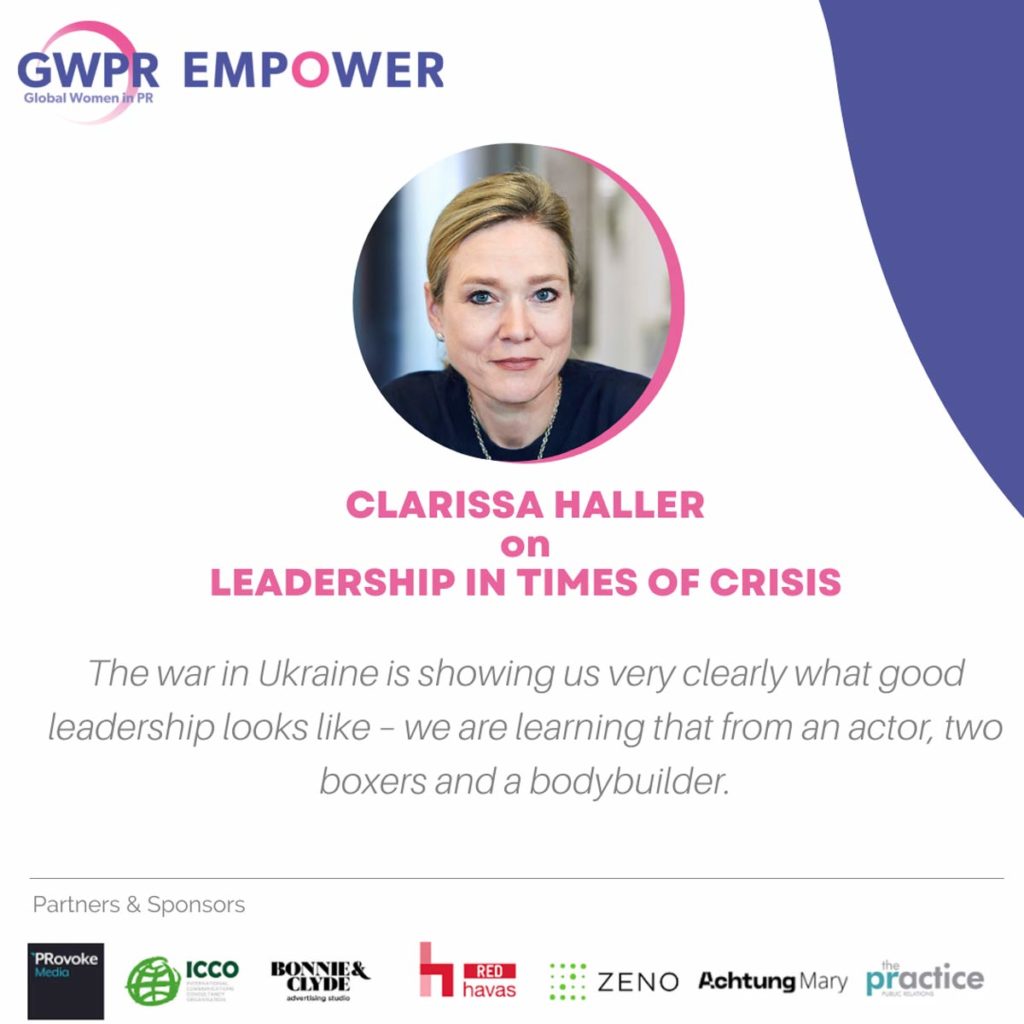Published 29th Jun 2022
Summary of the session by Arina Flyugova, Corporate Affairs Manager, HEINEKEN and GWPR Empower programme mentee. Clarissa Haller is Senior Partner at Dynamics Group in Zurich, Switzerland
Leadership is a complex and demanding task, especially in times of crisis. Excellence in leadership comes with experience. Talent, diversity, and a strong organization culture can all support leaders in challenging times.

A leader must provide support to his/her team, ask the right questions, provide a shelter at times, help people to thrive and still remain a role model. Leading teams and organizations can lead to insecurity and injustice; especially in times of crisis. It has nothing to do with friendship – leadership requires honesty and transparency, firmness to decide, even though that decision might not be suitable for all. Great leaders stay in touch, they are close to people and do not hide. Even when super busy they always make themselves available.
Clarissa reminded us of the three golden rules of a good leader:
- Trust your team
- Encourage talent
- Pay attention to diversity in the team.
These rules help create the culture in an organization that will form the framework for leadership where people are heard, there is trust and a contributive spirit. It elevates a leader and in a crisis a leader will have the right conditions to naturally separate from other managers and lead the organization through challenging times.
As said, leading during a crisis requires experience. We can observe that some leaders in difficult times refrain from making decisions or speaking to the public. Others react too fast or find it difficult to accept lack of information or knowledge. Only a few take the time for a helicopter view to assess and reflect before acting. This is the role of communicators to support leaders and help them gain the necessary experience before a crisis hits.
The role of communicators is crucial in managing a crisis – they are in the best position to provide leaders with expertise and advice, put a situation in perspective and outline consequences. It is the task of a leader to consider professional advice. A good leader is a leader who listens, consults and reflects. But ultimately it is the CEO who decides.
Certainly, there are different leadership styles. Sometimes a woman finds it challenging to put her proposal through. Our session participants shared several tips for female leaders if they feel they are not being heard:
- Refer to your manager for your support. In most cases people are not even aware there is a problem.
- Collaborate with a colleague, find your allies, and prepare for your meeting.
- Know your facts.
- Just act.
These days we are navigating through tough and uncertain times – it is a never-ending crisis. It is important for a leader to invest in building resilience. It is important to tell yourself not to be afraid – take the time to come down and act. Look out for role models around, how they deal with a crisis – there are many examples of strong leadership around us and not only from a business environment.






